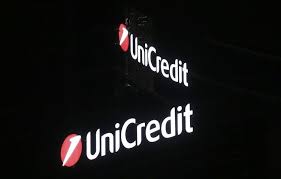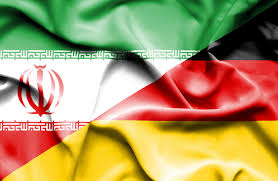DOJ and OFAC Announce Another Sanctions Settlement – UniCredit Group Banks Pay Over $1.3 Billion and Subsidiary Bank Agrees to Plead Guilty for Violating Iran Sanctions

The Justice Department and the Treasury Department’s Office of Foreign Asset Control (OFAC) are on a roll. Global banks are facing renewed prosecutions, along with aggressive sanctions prosecutions of companies for integrating acquisitions and supply chain missteps.
In the latest billion-dollar plus settlement, UniCredit Bank S.p.A UC Group), based in Milan, Italy and two subsidiaries, UniCredit Bank AG (UCB AG), a German bank (aka HypoVereinsbank), and UniCredit Bank Austria (BA), which is located in Vienna, Austria, settled with DOJ, OFAC, the New York District Attorney’s Office, the New York State Department of Financial Regulation Services, and the Federal Reserve, for its pervasive conduct violating the US Iran sanctions program and OFAC’s prohibition against entities designated as a weapons of mass destruction proliferator.
UCB AG agreed to plead guilty to violating the International Emergency Economic Powers Act (IEEPA) and to defraud the United States by processing $393 million dollars of transactions through the US financial system for the Islamic Republic of Iran Shipping Lines, which is designated as a weapons of mass destruction proliferator, and other Iranian entities subject to US sanctions. Under the plea agreement, UCB AG agreed to pay approximately $316.5 million and a fine of $468.35 million. UCB AG also entered into a plea agreement with the New York District Attorney’s Office and agreed to pay $316.5 million

UniCredit Bank Austria (BA), which is located in Vienna, Austria), and is another bank in the UC Group, agreed to a non-prosecution agreement and to forfeit $20 million for its violations of IEEPA involving Iran and other sanctions programs.
UC Group, UCB AG and BA entered in settlement agreements with OFAC, the Federal Reserve and the NY State Department of Financial Services under which they will pay penalties totaling $660 million, consisting of $611 million to OFAC (which will be satisfied in part by payments to DOJ and the Federal Reserve), $157 million to the Federal Reserve, and $405 million to NY DFS.
Reviewing the Illegal Conduct
Sometimes companies make no attempt to even try to comply with US Sanctions. When the financial benefit on the other side of ledger is high, greed can take over reason, compliance and any pretense of ethical commitment. It is rare to see such blatant conduct formalized in written policies and procedures, and some may scoff at my focus on this by rationalizing that sometimes companies do not put a culture of violation in writing but adhere to an unwritten code of conduct that sanctions such illegal conduct. I cannot help but wonder how a compliance officer can even attempt to operate in a business where the policies and procedures dictate a control designed to violate the law.

UCB AG created a policy manual that instructed employees to process transactions with Sanctioned Entities in an “OFAC-neutral” manner so that “no US bank can see OFAC contents” in any payment message processed through U.S. financial institutions. UCB AG employees removed names and other identifying information relating to sanctioned entities.
In particular, UCB AG opened US dollar accounts for the Islamic Republic of Iran Shipping Lines and automatically transferred amounts from related entities to the IRISL primary account.
Interestingly, the written policies and procedures were not subject to legal review and implemented with the authorization and knowledge of senior management, a specific steering committee implementing the manual and the involvement of numerous employees. OFAC specifically noted that UCB AG conducted a cost-benefit analysis of its customers involved in OFAC prohibited transactions to determine whether to continue to process these transactions based on whether a customer was a “profitable” customer, stating that “customer relationships which generate no earning should not be continued. The employee stated that transactions related to profitable business should “be structured in a way that they will not become conspicuous.”
OFAC designated IRISL, its related companies and vessels in September 2008 because of their involvement in weapons of mass destruction proliferation activity. Starting in October 2008, UCB AG processed a $3.6 million-dollar transaction by concealing the sanctioned entity from the US bank. Overall, OFAC noted that between January 3, 2007 and December 27, 2011, UCB AG processed 2,158 payments totaling $527 million through US financial institutions in violation of various sanctions programs. In addition to the IRISL transactions, UCB AG processed a number of transactions where documentation contained references to shipment of oil to Iran.

Bank Austria’s violations involved 127 transactions that violated the Iran, Sudan, Burma, Cuba and Syria Sanctions Programs, respectively. Bank Austria processed illegal transactions up to and including 2012 and relied on nontransparent payment practices to process transactions to or through the United States to disguise the involvement of the sanctioned parties.
UC Group violated OFAC regulations by conducting 612 transactions in violation of the Cuba, Iran, Burma, Sudan and Syrian Sanctions programs.















